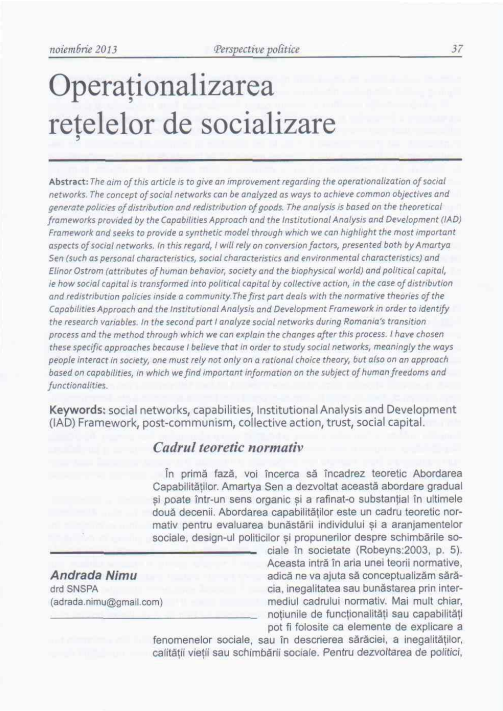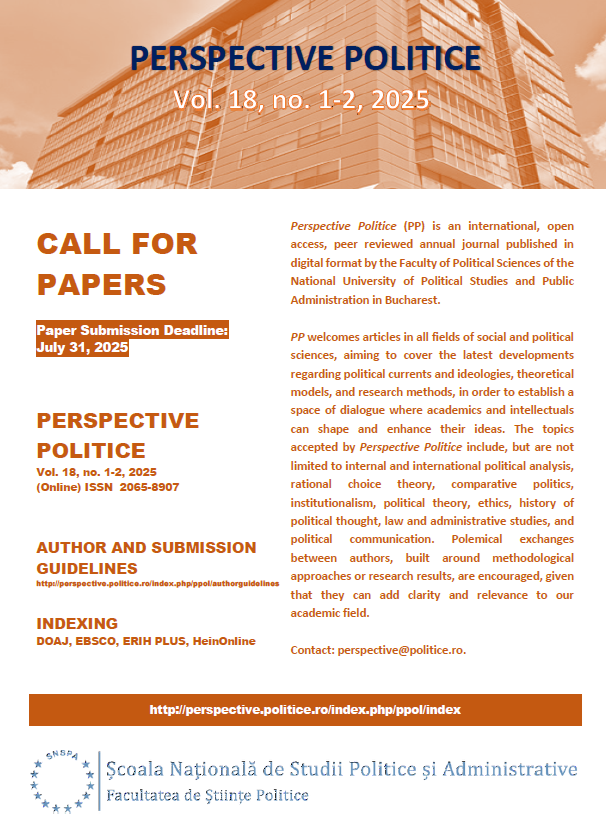Operationalizarea retelelor de socializare
Abstract
The aim of this article is to give an improvement regarding the operationalization of social networks. The concept of social networks can be analyzed as ways to achieve common objectives and generate policies of distribution redistribution of goods. The analysis is based on the theoretical frameworks provided by the Capabilities Approach and the institutional Analysis and Development (IAD) Framework and seeks to provide a synthetic model through which we can highlight the most important aspects of social networks. In this regard, I will rely on conversion factors. presented both by Amartya Sen (such as personal characteristics, social characteristics and environmental characteristics} and Elinor Ostrom (attributes of human behavior, society and the biophysical world) and political capital ie how social capital is transformed into political capital by collective action, in the case of distribution and redistribution policies inside a community. The first part dents with the normative theories of the Capabilities Approach and the Institutional Analysis and Development Framework in order to identify the research variables. In the second part I analyze soda! networks during Romania's transition process and the method through which we can explain the changes after this process. I have chosen these specific approaches because I believe that in order to study social networks, meaningly the ways people interact in society, one must rely not only on a rational choice theory, but also on an approach based on capabilities, in which we find important information on the subject of human freedoms and functionalities.




